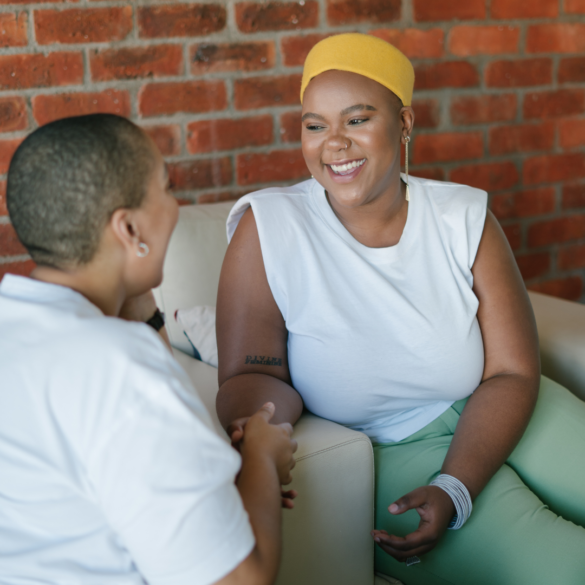How to support someone when they come out
Written by Jes Rickarby, one of our co-facilitators
Coming out can be a stressful experience. In this blog, we share a coming out story from one of our team, and explore how you can support someone when they come out.
Unfortunately, sexual orientations or gender identities are not always accepted without prejudice or stigma.
Sometimes, we feel we cannot be ourselves around our friends or family, let alone introduce a partner to them.
In an ideal world, there would be no raised eyebrows, no cutting comments – just a celebration and acceptance – how wonderful and rare that can be!
My coming out experience
I came out as lesbian when I was 13, although now would identify as pansexual. At an already difficult time for most teenagers, this was exaggerated by ignorance.
It soon spread through the school, and the common comments would be things like –
‘Ew, do you fancy me then?’ People did not realise that – much like straight people – finding someone attractive is down to more than just their gender.
When coming out to my parents, my dad particularly struggled, but I remember him sitting on my bed, and with a big gulp he said – “I love you no matter who you love, and only ever want you to be happy”.
I will always remember this, knowing my dad had contrasting feelings about the LGBT+ community. We now healthily debate each other’s views, which gives me a better understanding of his points, and him a deeper understanding of mine. Regardless of whether or not we see eye-to-eye on many things, we make sure that the debating space is open and free.
Seeing the world progress at the rate it has since I was a teenager, it seems to me like a much more comforting place to be yourself in. Even in the last 10 years, acceptance has grown substantially. You can be part of that change.
It doesn’t take much to support someone who has come out.
Why not talk to them about how they feel? It may be that they aren’t worried at all and just want to share, or on the other hand, they may feel confused and unsure.
Being open and reassuring will help both of you in the long run.
Some examples of helpful things to say:
– Thank you for telling me
– I love and accept you for who you are
– How do you feel about coming out?
– Tell me more about your experience so I can understand you better
– Are you seeing anyone and would you like me to meet them?
Some examples of unhelpful things to say:
– Are you sure it’s not just a phase?
– Why would you choose this life?
– Is there something I could have done differently?
– I was hoping for grandchildren
– Does that mean you won’t be getting married?
In conclusion
Everyone will have their individual experiences with sexuality, and there are still misconceptions and stigmas surrounding it.
It’s okay if you feel uncomfortable about someone you know coming out. This may make you reflect on your own upbringing and experiences.
But challenging negative thoughts and stigmas can slowly change general misconceptions, and will help you to better support the one you love.
To find out more about how Suffolk Mind can help you and your loved one, take a look at our LGBT+ Mental Health page.











